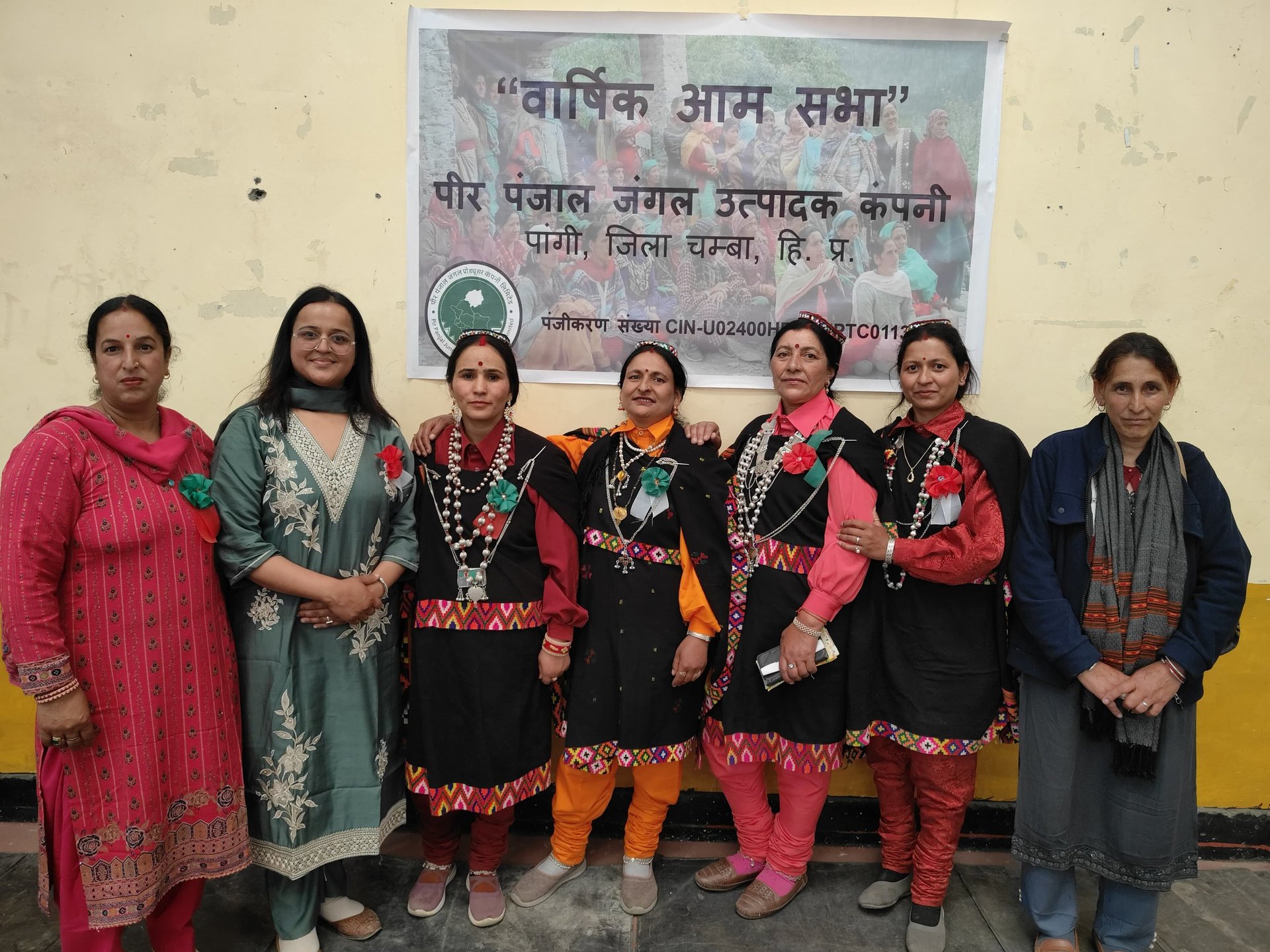
Pangi Valley's Annual General Meeting showcases the success of Himachal Pradesh's first women-led jungle producer company
10.06.25
350 Women Shareholders Gather to Celebrate Jungle Producer Company’s Success
The Pir Panjal Producer Jungle Producer Company (PPJPC) held its first Annual General Meeting (AGM) in Kilar on 9th June 2025. This marked a historic moment for women's economic empowerment in Himachal Pradesh’s forest governance. Approximately 350 shareholders from 24 Producer Groups (PGs) attended, alongside representatives from Gram Panchayats (GPs), the Block Development Council, and Mahila Mandals (MMs) from various villages.
The AGM was entirely organised and managed by the PPJPC’s Board of Directors (BoDs). Chief guests Mr Bhagwan Das (Principal, Government Senior Secondary School), Dr Advaita (Indian Institute of Management, Sirmaur), and Mr Sahil Mahajan (Manager, State Bank of India, Kilar) inaugurated the meeting.
Significance of the Moment
A producer company (PC) is a corporate entity that enables economies of scale, aggregation, mechanisation, value addition, and formal market linkages for community enterprises. By law, a PC must hold its first AGM within 90 days of incorporation to adopt its articles, appoint directors, and discuss key matters. For the tribal women of Pangi Valley, this gathering was not merely procedural—it was the culmination of years of invisible labour finally gaining visible leadership.
Pangi Valley, nestled at 3,353 metres in Himachal Pradesh, is accessible only six to eight months each year due to heavy snowfall. Here, women have long carried out the demanding work of collecting seasonal forest products (SFPs)—hazelnuts, morel mushrooms, medicinal herbs—drawing on knowledge passed down through generations. Yet until now, men alone managed sales, local traders set unfair prices, and payments were often delayed.
Through PPJPC, these women have formalised their role in India’s forest-based economy. With Goods and Services Tax (GST) registration, corporate bank accounts, and legal recognition, they now control every stage of the value chain.
From Invisible Labour to Visible Leadership
Ms Sunita Devi, Board Director, presented the annual report, announcing
Total income: ₹5,23,461
Profit: ₹20,820
GST contribution: ₹22,841
Ms Jamuna Devi then shared a detailed breakdown of ₹4,79,661 earned from hazelnut sales, explaining how ₹4,21,900 was returned directly to the women collectors with transparent accounting for every rupee. These figures demonstrate that fair, transparent marketing of SFPSs can be both economically viable and socially transformative.
Annual Report and Financial Results
Broader Impact
PPJPC’s success presents a replicable model, yielding profound benefits for forest‑dependent communities, women’s empowerment initiatives, and market partnerships.
For forest-dependent communities: PPJPC demonstrates that formalisation need not abandon traditional knowledge or sustainable practices; instead, it can strengthen community control and ensure fair returns.
· For women's empowerment: Instead of token leadership roles, PPJPC builds on women’s existing skills and knowledge, granting them ownership and decision-making power in sectors they have always supported but never controlled.
· For market partnerships: Direct linkages with buyers, such as Dry Fruitz Basket in Hyderabad, show that community enterprises can access formal markets while upholding democratic governance.
Ms Bhagtu, another board member, outlined ambitious plans for the coming year: expanding into new villages, launching training programmes at IIM Sirmaur, and establishing proper office and storage facilities. These initiatives aim to include a wider range of SFPs and enhance both infrastructure and technical capacity.
The growing interest from other forest‑dependent communities across Himachal Pradesh and beyond suggests that the PPJPC model may soon be replicated elsewhere, further transforming livelihoods and governance.
